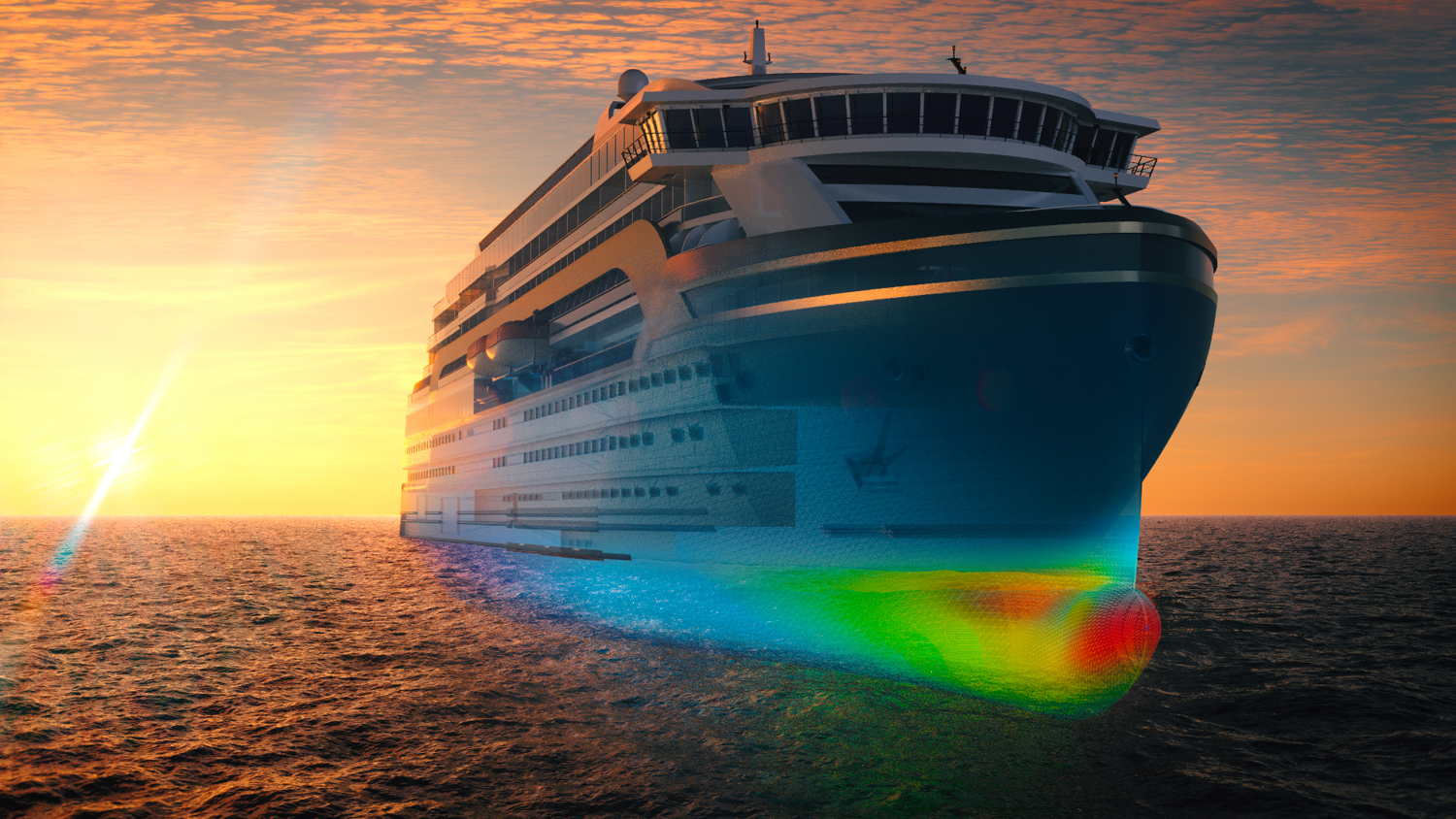
Ship design hydrodynamics and CFD analysis
Huge potential for energy efficiency combining propulsion system experience and product knowledge combined with CFD, for analysis of the interplay between the propeller system and the flow around the hull.
Use of advanced computations for investigations of energy- and power saving potential
Computational Fluid Dynamics (CFD) is critical for researching propulsion upgrade projects. Combining propulsion system experience and product knowledge with CFD, for analysis of the interaction between the propeller system and the flow around the hull, has enormous potential for energy efficiency.
Weight and stability
Our ship design expertise is renowned for using innovative methods and technologies to accurately estimate ship weight, ensuring optimal stability and performance. We create complex 3D models that account for ship geometry, centre of gravity, and weight distribution.
We rigorously test and calculate the vessel's ability to withstand diverse conditions, regardless of its operational region. To meet stability standards from various authorities, we analyse intact and damaged conditions using deterministic and probabilistic methods.
Ship performance
Motion, comfort, dynamic positioning, and resistance all contribute to ship performance. Our confidence in vessel development is backed by a large database of model tests and sea trials conducted over the last four decades.
We accurately forecast and validate ship performance using cutting-edge methodologies and software. Even in the most challenging sea conditions, we simulate motion, comfort, and manoeuvrability.
Using advanced control systems, we model and test dynamic positioning systems. CFD is used to predict ship resistance and refine hull design for superior speed and fuel efficiency. Together, these elements are critical for optimal ship performance and safe, efficient maritime operations.
Multi-disciplinary design and optimisation
-
Every ship design is unique; hence, we work closely with our clients, prioritising their distinct requirements with the aim to exceed expectations
Advanced simulations
Our engineers and naval architects' expertise will benefit clients. Advanced simulations enhance their ship design and engineering expertise. Kongsberg Maritime expertise and cutting-edge software can help you understand wave, wind, current, and thruster effects on ship hulls in all sea conditions. These models' accuracy allows you to accurately predict real-world conditions.
You'll get exceptional outcomes, whether you're designing a ship or optimising one. Our services will exceed your expectations, ensuring your satisfaction.
